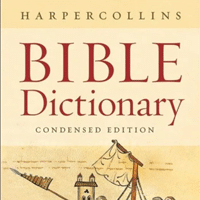I-zee´kee-uhl
The book of, an OT book of prophecies attributed to the sixth-century prophet Ezekiel (Heb., “God strengthens”). This prophet was taken hostage to Babylon by King Nebuchadnezzar in 597 BCE and, there, among the exiles, he continued to deliver prophetic oracles and relate ecstatic visions until 571 BCE.
Outline of Contents
Ezekiel
I. Oracles of judgment against Judah and Jerusalem (
A. Vision of God’s glory and call of Ezekiel (
B. Symbolic acts: the coming siege of Jerusalem (
C. Oracles of judgment and announcement of its imminence (
D. Abominations in the Temple: God’s glory departs (
E. Symbolic acts describing the exile and sayings against unresponsive people and false prophets (
F. Historical allegories and sermons: against the people, their kings, and individual wickedness (
G. Further oracles of judgment (
H. Symbolic acts: the siege begins (
II. Oracles against foreign nations (
A. Judah’s immediate neighbors: Ammon, Moab, Edom, the Philistines (
B. Tyre (
C. Egypt (
III. Prophecies of future restoration (
A. Announcement of Jerusalem’s fall: Ezekiel’s role as watchman and importance of individual responsibility (
B. Promises of deliverance from exile and restoration in the land (
C. God and Magog: the enemy’s ultimate defeat (
IV. Program for reorganization of the restored community (
A. Plans for new Temple: God’s glory returns (
B. Temple regulations and personnel (
C. The healing waters of the Temple spring (
D. Division of the land (




